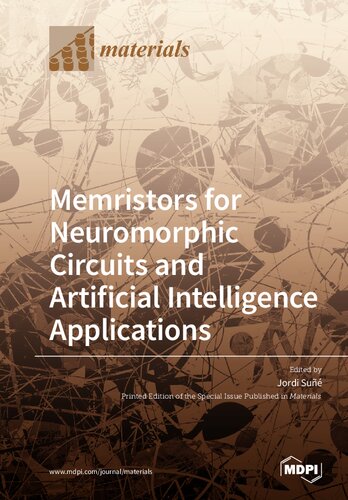

Most ebook files are in PDF format, so you can easily read them using various software such as Foxit Reader or directly on the Google Chrome browser.
Some ebook files are released by publishers in other formats such as .awz, .mobi, .epub, .fb2, etc. You may need to install specific software to read these formats on mobile/PC, such as Calibre.
Please read the tutorial at this link. https://ebooknice.com/page/post?id=faq
We offer FREE conversion to the popular formats you request; however, this may take some time. Therefore, right after payment, please email us, and we will try to provide the service as quickly as possible.
For some exceptional file formats or broken links (if any), please refrain from opening any disputes. Instead, email us first, and we will try to assist within a maximum of 6 hours.
EbookNice Team

Status:
Available4.5
22 reviewsArtificial Intelligence (AI) has found many applications in the past decade due to the ever increasing computing power. Artificial Neural Networks are inspired in the brain structure and consist in the interconnection of artificial neurons through artificial synapses. Training these systems requires huge amounts of data and, after the network is trained, it can recognize unforeseen data and provide useful information. The so-called Spiking Neural Networks behave similarly to how the brain functions and are very energy efficient. Up to this moment, both spiking and conventional neural networks have been implemented in software programs running on conventional computing units. However, this approach requires high computing power, a large physical space and is energy inefficient. Thus, there is an increasing interest in developing AI tools directly implemented in hardware. The first hardware demonstrations have been based on CMOS circuits for neurons and specific communication protocols for synapses. However, to further increase training speed and energy efficiency while decreasing system size, the combination of CMOS neurons with memristor synapses is being explored. The memristor is a resistor with memory which behaves similarly to biological synapses. This book explores the state-of-the-art of neuromorphic circuits implementing neural networks with memristors for AI applications.